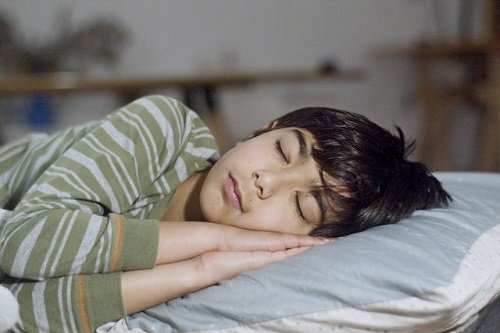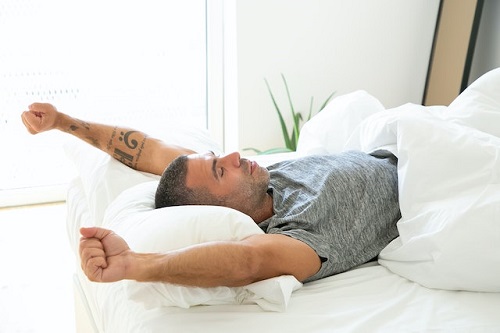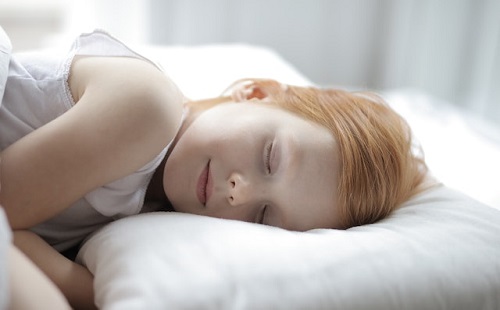Contents
Best time to sleep and wake up
The best time to sleep and wake up varies from person to person, age and daily schedule. Ideally, one should go to bed early and wake up early to start a day fresh and be productive throughout the day. Because of today’s lifestyle, office works and child care can make it very difficult to stick to the philosophy of “early to bed, early to rise”. Consistency of sleeping time is also equally important as the amount of sleep. The right amount of sleep helps to prevent health issues.
Best sleeping hours -best time to sleep and wake up

As already stated, you should go to bed early and wake up early in the morning. The pattern matches our biological tendencies to adapt our sleep pattern to that of the sun. It makes you sleepier naturally after sundown. Best sleeping hours also depend on when you need to rise in the morning and how much sleep you need every night.
Best Time to Wake up – best time to sleep and wake up
In an ideal situation, people start their daily activities at sunrise or, sometimes, even before that. Waking up early in the morning gives people more time on their hands during the day, allowing them to complete their activities and feel more energetic and in tune with nature’s cycle. Various Hindu sacred texts of ancient times recommend waking up in the Brahma muhurta, which begins 1 hour 36 minutes before sunrise.

Waking up early morning helps to
· Attain wisdom through meditation and self-introspection.
· To improve memory and concentration.
· To improve mental health as the environment is calm and serene early in the morning.
· Improve working efficiency by strengthening your mental focus and concentration.
Circadian rhythm – best time to sleep and wake up
Circadian rhythm is our brain’s natural sleep-wake schedule, like an internal body clock. People experience decreased alertness and increased wakefulness during certain times of 24 hours. Most people feel sleepy between 1 p.m. to 3 p.m. and between 2 a.m. to 4 a.m.
If the sleep quality is good, there will be less daytime sleepiness.
The circadian rhythm dictates our natural bedtime and morning wake-up schedules. Once people get used to sleeping and waking up simultaneously every day, their brain adapts to the schedule. It helps one to go to bed at night and wake up even before the alarm clock without any issues. Irregular bed timing throughout the week can make the circadian rhythm off-balance and results in daytime sleepiness.
Side effects of not getting enough sleep – (best time to sleep and wake up)
Daytime sleepiness indicates that the person is not getting enough sleep at night. Because of this, one can become forgetful and irritable. Not enough sleep also leads to more long-term health consequences like
- High blood pressure or hypertension
- Heart disease
- Depression
- Diabetes
- Obesity
When should I go to sleep?

The ideal time to go to bed depends on the sleep required by your age group. You can find your bedtime schedule based on when you must get up in the morning. Consider counting 7 to 8 hours backwards. So, if you need to wake up by 6 to 7 in the morning, then 10 or 11 is the perfect time to wind down. But whatever you do, ensure you can adhere to the sleep schedule every night, whether at the weekend or on work days. If the routine is not maintained, it will be challenging to get adequate sleep, and the Circadian rhythm will be disturbed.
Does timing matter?
When best time to sleep and wake up comes to our mind do note that there is no magic number that one has to adhere to. It depends on your personal need, which varies from person to person. For example, going to bed at 10 p.m. may be ideal for you but not suitable for another person. Instead of focusing on time, it will only work well for some. Instead of keeping the focus on number one, concentrate more on consistency, which means going to bed and waking up simultaneously. Consistency helps us to function better.
As the sun goes down, our brain perceives through the lack of light that it is time to go to wind down and triggers the secretion of the melatonin hormone. Melatonin secretion triggers other neurochemicals, making you ready to bed in a few hours.
How many hours of sleep should one get? (best time to sleep and wake up)

| Age group | Recommended amount of sleep |
| Infants 4 months to 12 months | 12 to 16 hours per 24 hours, including naps |
| 1 to 2 years | 11 to 14 hours per 24 hours, including naps |
| 3 to 5 years | 10 to 13 hours per 24 hours, including naps |
| 6 to 12 years | 9 to 12 hours per 24 hours |
| 13 to 18 years | 8 to 10 hours per 24 hours |
| Adults | 7 or more hours a night |
Apart from age, other factors can affect the amount of sleep one needs.
- Sleep quality. Your sleep quality is crucial. If your sleep is interrupted frequently, you are not getting good quality sleep.
- Previous sleep deprivation. Your requirement for sleep increases if you are already in a sleep-deprived state.
- Pregnancy. Changes in hormone levels and physical discomfort can result in poor sleep quality during pregnancy. Hence more sleep is required to give the body the rest it needs.
Sleep tips:
Aim to eat dinner at the same time every night: Always avoid heavy meals late at night. Eating late impacts our sleep quality at night due to the release of melatonin and HGH hormones. Make an effort to have dinner early in the evening. Avoid heavy, spicy, rich foods within two hours of bed. These spicy foods can cause heartburn or stomach trouble. A disturbed stomach can distract one awake.
Exercise: Regular exercise improves our sleep quality. Exercising can enhance sleep and, at the same time, reduce symptoms of insomnia and sleep apnea. In people with severe insomnia, exercise offers more benefits than most drugs. Exercise reduces the time to fall asleep by almost 55% and total night wakefulness by 30%. Movement late in the evening or at night can cause sleep problems. Activities cause overstimulation. Hence there could be an increase in alertness and hormones like epinephrine and adrenaline. But exercises in the morning or during the day improve sleep quality and sleep duration.

Eliminate naps: Napping affects different individuals differently. For some people, short power naps are beneficial, whereas for others napping during the day negatively impacts their sleep. Sleeping during the day confuses our internal clock, and one might find it difficult to sleep at night.
Minimize alcohol or caffeine consumption in the evening: Alcohol can make someone drowsy, so many like to have it before bed. But it affects our brains in a way which can lower sleep quality. It can make one wake up often, and thus deep sleep is disturbed. Alcohol consumption decreases the natural night time elevations in HGH OR human growth hormone. HGH plays a significant role in our circadian rhythm and has many other vital functions.
For more sleeping Tips please check How to sleep Better at Night
Overall, it is best to go to bed earlier and wake up early each day. Still, this type of sleep schedule may only work for some. It’s far more essential to ensure you get enough quality sleep, and you can confirm it by waking up and going to bed at the same time daily.
If you face trouble falling asleep despite a consistent bedtime schedule or continue to experience daytime sleepiness, do consult a health care professional. It could indicate sleep disorders and might need further investigation.
References
1. Better sleep, naturally. (2018, November 16). Harvard Health. https://www.health.harvard.edu/staying-healthy/better-sleep-naturally
2. CDC. (2022, September 19). best time to sleep and wake up Centers for Disease Control and Prevention. https://www.cdc.gov/sleep/features/getting-enough-sleep.html
3. Sleep/wake cycles. (2019, November 19). Hopkinsmedicine.org. https://www.hopkinsmedicine.org/health/conditions-and-diseases/sleepwake-cycles
4. Stanford researchers identify best hours for shut-eye when sleep must be limited. (n.d.). News Center. Retrieved January 11, 2023, from https://med.stanford.edu/news/all-news/2003/05/stanford-researchers-identify-best-hours-for-shut-eye-when-sleep-must-be-limited
5. Suni, E. (2018, October 26). How to fix your sleep schedule. best time to sleep and wake up. https://www.sleepfoundation.org/sleep-hygiene/how-to-reset-your-sleep-routine
6. Therrien, A. (2018, May 13). Should we sleep and wake early to boost our health? best time to sleep and wake upBBC. https://www.bbc.com/news/health-44070961
